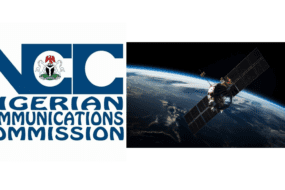As tech evolves at breakneck speed, Nigeria’s telecom regulator is rewriting the rules. The Nigerian Communications Commission (NCC) has unveiled its 2024 Regulatory Impact Assessment (RIA), a bold move to upgrade existing telecom regulations in light of rapid technological disruption.
From licensing frameworks to infrastructure sharing, the review covers it all. But the bigger goal? To ensure these regulations remain relevant in a world increasingly shaped by AI, 5G, and the Internet of Things (IoT).
During a stakeholder forum held both online and in person, Dr Aminu Maida, the NCC’s Executive Vice Chairman, emphasised the importance of creating a regulatory framework that responds to present-day realities.
“This is an innovation in the Commission’s rule-making process and another avenue for participatory regulatory engagement with all stakeholders,” he said.
Stakeholders, Consumers, and the New Rulebook
At the centre of the RIA are three pillars: the consumer, the market, and the government. According to Maida, this structure reflects the NCC’s intent to balance user protection, market competition, and national development.
“It goes without saying that the Commission places consumers at the centre of its regulatory priorities,” he added.
The RIA looked closely at how regulations impact end-users’ satisfaction, especially in areas like subscriber management and SIM registration. But it also studied how these rules affect operators — from market entry barriers to spectrum efficiency.
And it’s not just about the private sector. The Commission is also aligning with federal policy goals on digital inclusion and innovation. Maida described the review as a key opportunity for all stakeholders — including telecom operators, civil society, and consumers — to actively shape policy decisions.
“When drafted properly, these regulations safeguard the public interest, stimulate innovation, and attract investment,” he said.
Future-Proofing Regulation in a Disruptive Era
One of the biggest motivations behind this review is the rise of emerging technologies. As new platforms and devices reshape communication, the NCC wants to ensure that Nigerian laws don’t get left behind.
Maida urged stakeholders to submit feedback that is both honest and constructive. “Let us therefore scrutinise rigorously, listen to diverse viewpoints respectfully, and remain focused on the ultimate goal: building a regulatory framework that promotes growth and ensures market sustainability,” he said.
He also warned that rigid or outdated laws could stall innovation or discourage investment. A flexible approach, according to him, is the only way to future-proof Nigeria’s telecom ecosystem.
The NCC is currently reviewing eight key subsidiary regulations, all of which will directly impact licensing, consumer protection, compliance, and resource management. These updates are expected to create a more adaptive environment that can accommodate both industry growth and user trust.
As Maida put it: “The Commission remains committed to fostering a fair, transparent, and consumer-centric telecommunications environment.”







One reply on “NCC Rethinks Rules To Match Tech Disruption”
[…] has rolled out fresh restrictions aimed at curbing conflicts of interest in the industry. Under the Nigerian Communications Commission’s (NCC) newly issued Corporate Governance Guidelines, top officials will face mandatory “cooling-off” […]